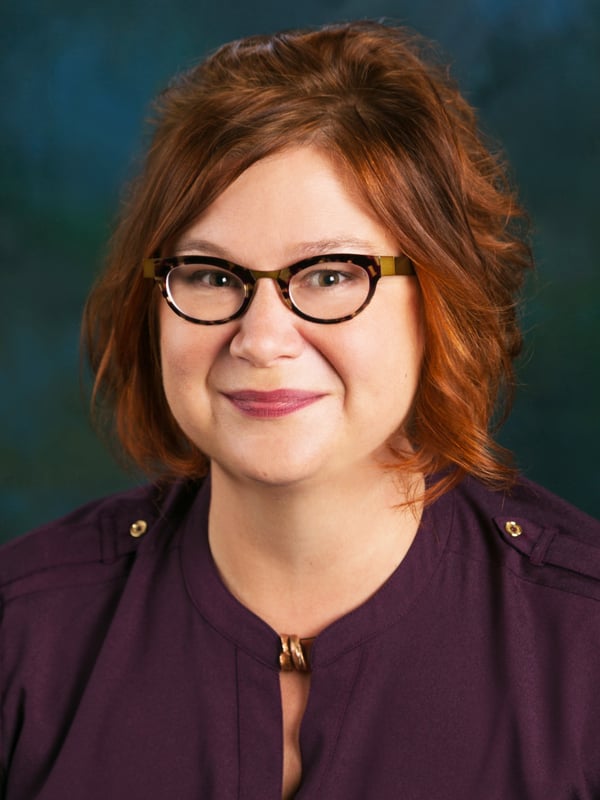After unexpectedly falling into palliative care and becoming a staunch believer in its healing power, Amos Bailey, MD, FACP, joined the University of Colorado Anschutz Medical Campus in 2015 set on expanding the field.
Demand for the specialty area, which provides holistic care for the ballooning number of patients living longer with life-limiting illnesses, had vastly outpaced the supply of trained providers. Unsure even himself if it would work, Bailey pitched his idea anyway: online education.
Now in its fourth year, the first-of-its-kind Palliative Care Program has attracted students worldwide and garnered widespread attention, most recently from the American Academy of Hospice and Palliative Medicine. The academy recognized Bailey for his innovative efforts in educating the next generation of caregivers with this year’s Project on Death in America (PDIA) Palliative Medicine National Leadership Award.
“People are looking at what we are doing here and thinking: They really are coming up with a new path forward,” Bailey said. “I wouldn’t be getting this award if the university hadn’t been so open to innovation.” Bailey emphasized that dozens of colleagues from multiple disciplines joined him in creating the Graduate School program, including Co-Directors Regina Fink, PhD, and Kelly Arora, PhD.
CU Anschutz took a chance; it worked
When palliative care lured Bailey away from his oncology practice in 1989, the specialty was barely known. Today, most medical and nursing schools offer some form of palliative care training. But it’s not enough, Bailey said. Moreover, many of the people seeking the training are mid-career providers not wanting to leave their jobs, families and communities to study in another state.
“And even if they did, we don’t have enough space,” said Bailey, a professor in the School of Medicine’s Division of General Internal Medicine. “We need thousands of providers but have no way to train them.”
His online program eliminates both roadblocks.

Palliative Care Program Director Amos Bailey and Co-Director Regina Fink have gathered a multidisciplinary team that has created a nationally recognized educational program.
“It’s exceeded all of my expectations,” Bailey said of the program, which includes an interprofessional graduate certificate and a master’s degree option as well as a Coursera course.
“It’s amazing to me that it actually works, because you are talking about something that’s really humanistic. This is not computer programming.” Palliative care involves relationships, communication and interactive treatment, he said. “Can you really teach that to people online? It turns out you can.”
Whole-person care for patient’s whole life
Unlike federally mandated end-of-life hospice care for terminally ill patients no longer receiving treatment, palliative care provides medical, social, psychological and spiritual support for patients regardless of their treatment choices.
‘People are looking at what we are doing here and thinking: They really are coming up with a new path forward.’ – Amos Bailey, MD
Studies have found that the multidisciplinary care, which patients can receive for years, decreased depression, increased quality of life and even lengthened life for some patients, Bailey said. “Taking care of the whole person and their symptoms allows them to better tolerate and benefit from their medical treatment.”
Students have included nurses, physicians, pharmacists, physician assistants, social workers and spiritual care providers, Bailey said.
“They all have to be in a team working together to be effective, because it’s not just about the pain pill,” he said. “It’s: Do you have the money to cover it? Do you have a safe place to store it? Are you afraid of addiction because it’s occurred in your family, so you’re shorting yourself pain medication?”
Technology changing the face of education
Bailey credits advanced communication technology and an expert curriculum designer for the largely online program’s effectiveness.
“Every week, we start with this patient and family provider video, so it’s like the student is going in with the palliative care team to see this patient and family.” Whether patients have late-stage cancer or heart failure, palliative care community specialists work together to ease all symptoms.
The program includes three, weekend-long intensives on campus.
 |
| Cara Thompson |
“They really did a great job of emulating that in-person element that is so critical to palliative care,” said Cara Thompson (BSN, ’07), a 2018 graduate of Bailey’s inaugural two-year master’s program. “We were always Zooming in as teams with other students to work on assignments.”
Thompson worked as a hospice nurse after graduating from CU’s College of Nursing, where she also earned a certificate in palliative care in 2010. Since gaining the master’s degree in the Graduate School program, she has worked as the nurse care manager on the patient palliative care team at the UCHealth University of Colorado Hospital on campus.
“I’m kind of the front-line person who triages all of the consults that come into our team,” Thompson said.
New physician fellowship set to add to options
This summer, Bailey and team will launch an online-focused fellowship program for six physicians. “It’s the first time in the country that anything like this has been approved. These six people will take the master’s program, which is mostly online, and they will see patients in their own community for clinical activities.”
In a year and a half, the Coursera courses have attracted 3,550 enrollees, largely internationally, bringing palliative care to developing countries where Coursera waives fees, Bailey said.
“Amos (Bailey) and Regina (Fink) and everybody in the program are really on the frontier of palliative care education,” Thompson said, adding that the work she did in the program on communication and spirituality were particularly beneficial for her, as she had been largely focused on the technical aspects of care.
“I think the program really opened my eyes to how much growth was there for me when it came to communication, relationships and understanding all of the various forms that palliative care can take.”




